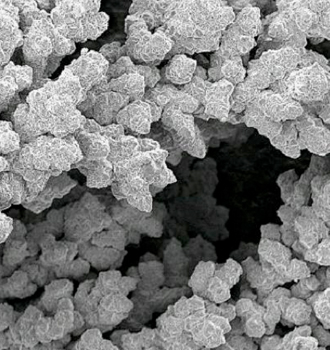A catalyst is something that helps chemical processes happen. The most common catalyst is heat, but sometimes a catalyst is a substance that facilitates the process without undergoing any transformation itself.
Silver is a common catalyst for many manufacturing processes, often producing items that you use every day.
Because of its unique chemical properties, silver is a vital catalyst in the production of two major industrial chemicals: ethylene oxide and formaldehyde. Because the silver is not effected by the reaction, it is almost completely recovered after it is used.
Nearly 10 million ounces of silver are used each year to produce ethylene oxide. Ethylene oxide is the foundation for plastics including polyester, a textile used in both mainstream fashion and specialty clothing. This same substance is an ingredient in molded items such as insulating handles for stoves, key tops for computers, electrical control knobs, domestic appliance components, and electrical connector housings. About 25% of ethylene oxide production is used to manufacture antifreeze coolant for automobiles and other vehicles.
Silver catalysts can also be used to produce formaldehyde, a chemical produced from methanol. It is the building block of solid plastics adhesives, laminating resins for construction plywood and particle board. Formaldehyde also helps to produce finishes for paper and electronic equipment, textiles, surface coatings that resist heat and scratches, dinnerware and buttons, casings for appliances, handles and knobs, packaging materials, automotive parts, thermal and electrical insulating materials, toys and many other products.
For more information on silver and catalysis, please see Silver Catalysis Backgrounder .

